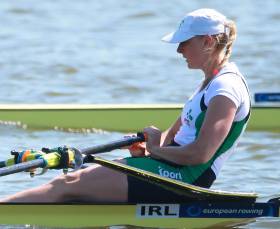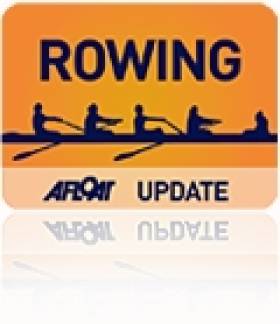Displaying items by tag: Campbell
#Rowing: Sanita Puspure battled through awful conditons to take second place in her heat and qualifiy for the quarter finals of the single sculls at the Olympic Games in Rio de Janeiro. Carling Zeeman of Canada won the race well, with Puspure content - after an early struggle - to let her go and secure one of the other two quarter-finals places on offer. Nadia Negm of Egypt, struggling with her steering, actually pushed past Puspure at 1500 metres, but Puspure passed her in the better water in the final quarter.
Alan Campbell, competing for Britain, won his heat of the men's single sculls. The Coleraine man led from early on and easily qualified for the quarter-finals.
Olympic Games Rowing Regatta – Day One (Irish interest; selected results)
Men
Lightweight Four - Heat Two (Three Direct to Semi-Final): 2 Britain 6:01.27.
Single Sculls – Heat Four (First Three to Quarter-Finals; rest to Repechages): 1 Britain (A Campbell) 7:08.310.
Women
Single Sculls - Heat Three (First Three to Quarter-Finals; rest to Repechages): 1 Canada (C Zeeman) 8:41.12, 2 Ireland (S Puspure) 9:11.45, 3 Egypt (N Negm) 9:14.55
Campbell Denied Medal at World Rowing As Cuban Takes Surprise Silver
#WRChamps: In a terrifically exciting final of the men’s single sculls at the World Rowing Championships, Alan Campbell had to settle for fourth. Ondrej Synek of the Czech Republic was an impressive winner of the gold, but Angel Fournier Rodriguez of Cuba passed both Marcel Hacker (the eventual bronze medallist) and Campbell in the second half of the race to take a surprise silver.
World Rowing Championships, Chungju, Korea, Day Eight (Irish interest)
Men
Single Sculls – A Final: 1 Czech Republic (O Synek) 6:45.24, 2 Cuba (A Fournier Rodriguez) 6:48.91, 3 Germany (M Hacker) 6:49.39; 4 Britain (A Campbell) 6:51.44, 5 Netherlands 6:52.70, 6 Lithuania 6:56.19.
Women
Double Sculls – A Final: 1 Lithuania 6:51.82, 2 New Zealand 6:51.86, 3 Belarus 6:55.90; 4 Britain 6:58.67, 5 Germany 7:00.66, 6 Denmark 7:04.72.
B Final (Places 7 to 12): 1 United States (M O’Leary, E Tomek) 6:56.05, 2 Russia (E Potapova, M Kraskilnikova) 7:01.07, 3 Ukraine (A Kravchenko, O Buryak) 7:03.34, 4 Ireland (M Dukarksa, L Kennedy) 7:06.80, 5 Italy 7:09.04, 6 Korea 7:11.75.
Saturday
Men
Lightweight Double Sculls: 1 Norway 6:36.04, 2 Switzerland 6:37.11, 3 Britain (R Chambers, P Chambers) 6:38.04.






























































